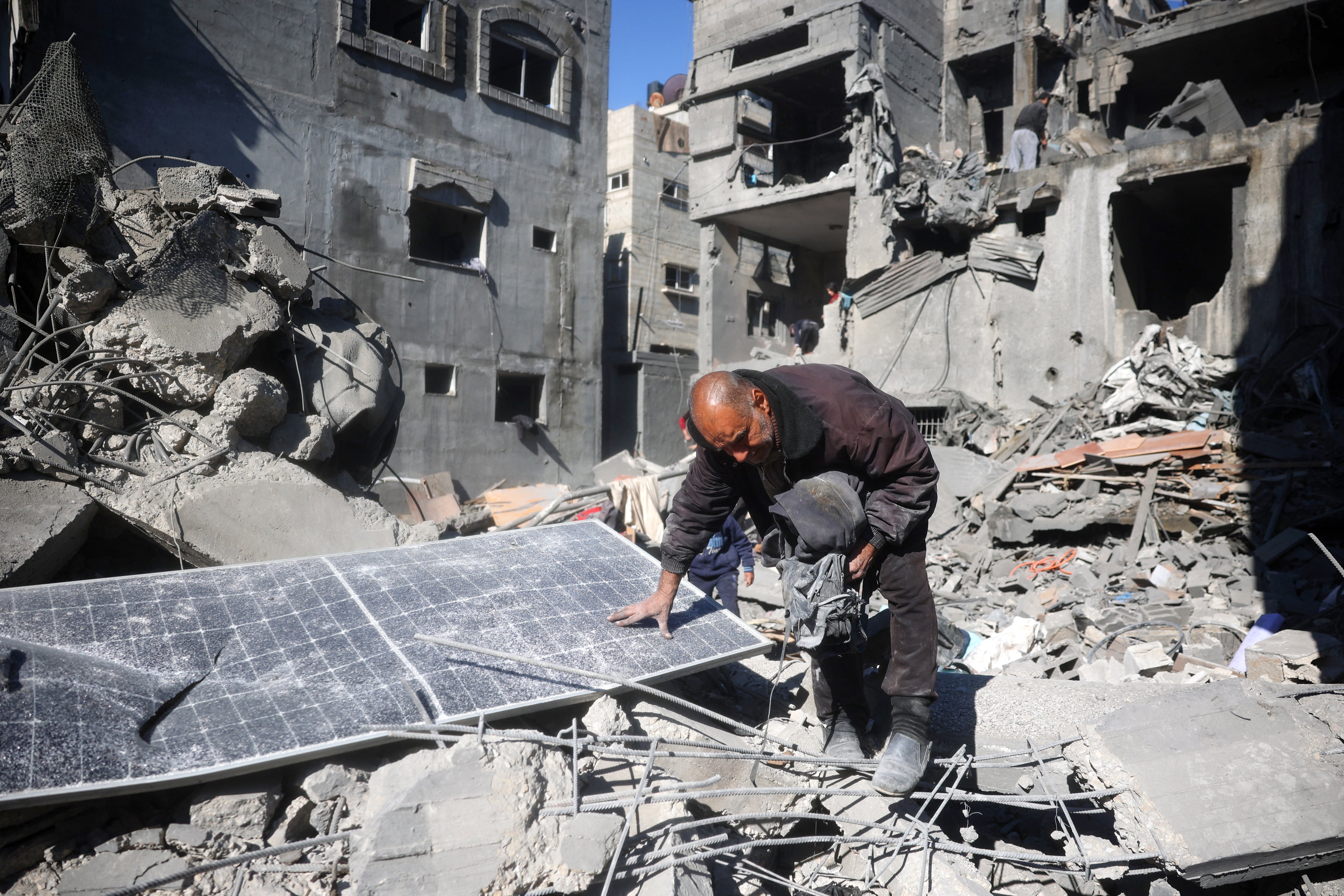88% of Israeli war crimes investigations end without charges, watchdog says
.jpg?trim=0,7,0,7&width=1200&height=800&crop=1200:800&w=1920&resize=1920,1267&ssl=1)
Israel has closed nearly nine out of ten investigations into alleged war crimes and abuses by its forces in Gaza and the West Bank without any charges or findings of wrongdoing, according to a report by a conflict monitor.
Data from conflict monitor Action on Armed Violence (AOAV) shows Israel has closed 88 per cent of cases into alleged war crimes and abuses by its forces in Gaza and the occupied West Bank without filing charges or finding wrongdoing.
The organisation examined 52 incidents publicly acknowledged by the Israel Defence Forces (IDF) or reported in international media between October 2023 and June 2025. These cases accounted for 1,303 Palestinian deaths, 1,880 injuries and two allegations of torture.
AOAV found only one investigation resulted in a prison sentence – a seven-month term for a reservist filmed abusing detainees at Sde Teiman detention centre in February this year.
Five other inquiries concluded violations had occurred, but led only to internal reprimands. The remaining 46 cases – seven closed with no findings of fault and 39 still unresolved – “suggest a pattern of impunity”, AOAV said in its report.
“These figures show a system that overwhelmingly shields its forces from accountability even in the most serious, public cases,” Iain Overton and Lucas Tsantzouris, the team at AOAV, wrote.
Among the high-profile cases still under review is the February 2024 killing of at least 112 Palestinians queueing for flour in Gaza City, a May strike on a Rafah tent camp that killed 45 people, and the 1 June deaths of 31 civilians heading to a food distribution point in Rafah.

The IDF said all “exceptional incidents” where laws of war may have been breached are assessed by a dedicated fact-finding team before any referral to military police.
In a statement included in AOAV’s analysis, the army said: “Any report, complaint or allegation that suggests misconduct by IDF forces undergoes an initial examination process, irrespective of its source.”
However, critics say the system is slow, opaque and rarely leads to trials. Israeli rights group Yesh Din told AOAV that just one prosecution came from 664 complaints linked to previous Gaza operations between 2014 and 2021.
In a statement shared with The Independent, the IDF said: “Since the beginning of the war, dozens of Military Police investigations have been opened on suspicion of incidents involving the death of detainees; improper treatment of detainees; using detainees to carry out military tasks; suspicions of looting, theft of weapons, and destruction of property; and suspicion of unlawful use of force. Most of these investigations are still ongoing.”
The statement added: “During armed conflict, operational activity may result in the death or injury of civilians, as well as damage to civilian property. Such outcomes, while unwanted and regrettable, generally do not, in and of themselves, raise a reasonable suspicion of a criminal offence, since they may result from operational activity conducted in accordance with the law. In these cases, additional information is required to assess whether a reasonable suspicion of a criminal offense arises.”
One of the most scrutinised cases in the current war involved the April 2024 drone strike that killed seven World Central Kitchen aid workers, despite them travelling in clearly marked vehicles with their movements coordinated in advance.
The IDF later called it “a grave mistake”, dismissed two officers and reprimanded others, but no criminal charges were brought.
The IDF statement to The Independent added that a permanent, independent IDF body called the General Staff Fact-Finding Assessment Mechanism investigates exceptional incidents during military operations.
“During the ‘Iron Swords’ war, the mechanism has been activated to examine exceptional incidents that occurred during the fighting. These include, among other things, incidents in which harm to assets or personnel of humanitarian aid organisations was alleged; incidents involving alleged harm to shelters for displaced persons; and incidents in which harm to medical institutions or staff was alleged.
“To date, the mechanism has completed its review in dozens of cases, and these have been transferred to the Military Advocate General for examination.”
Meanwhile, AOAV, in its report, said that unresolved cases included four fatal incidents last month alone near food distribution points in Gaza.
The report concludes that Israel’s investigations “fall far short of international standards for independent, transparent inquiries into alleged war crimes”, warning that internal reviews allow the country to resist external legal scrutiny while victims are left without justice.
